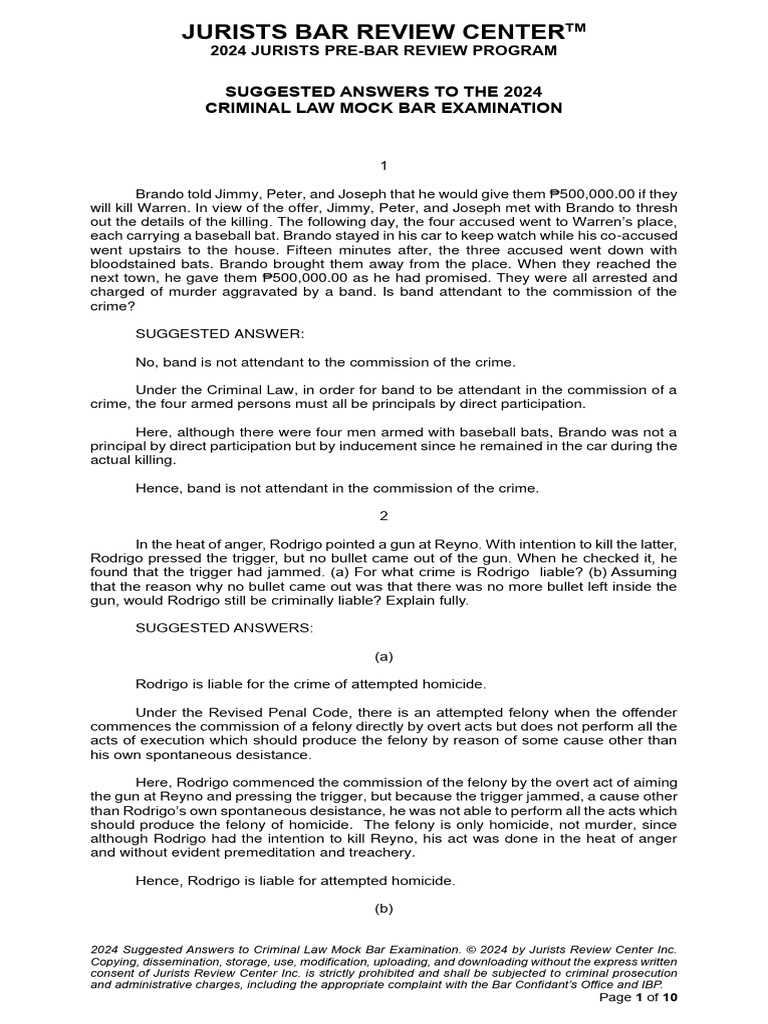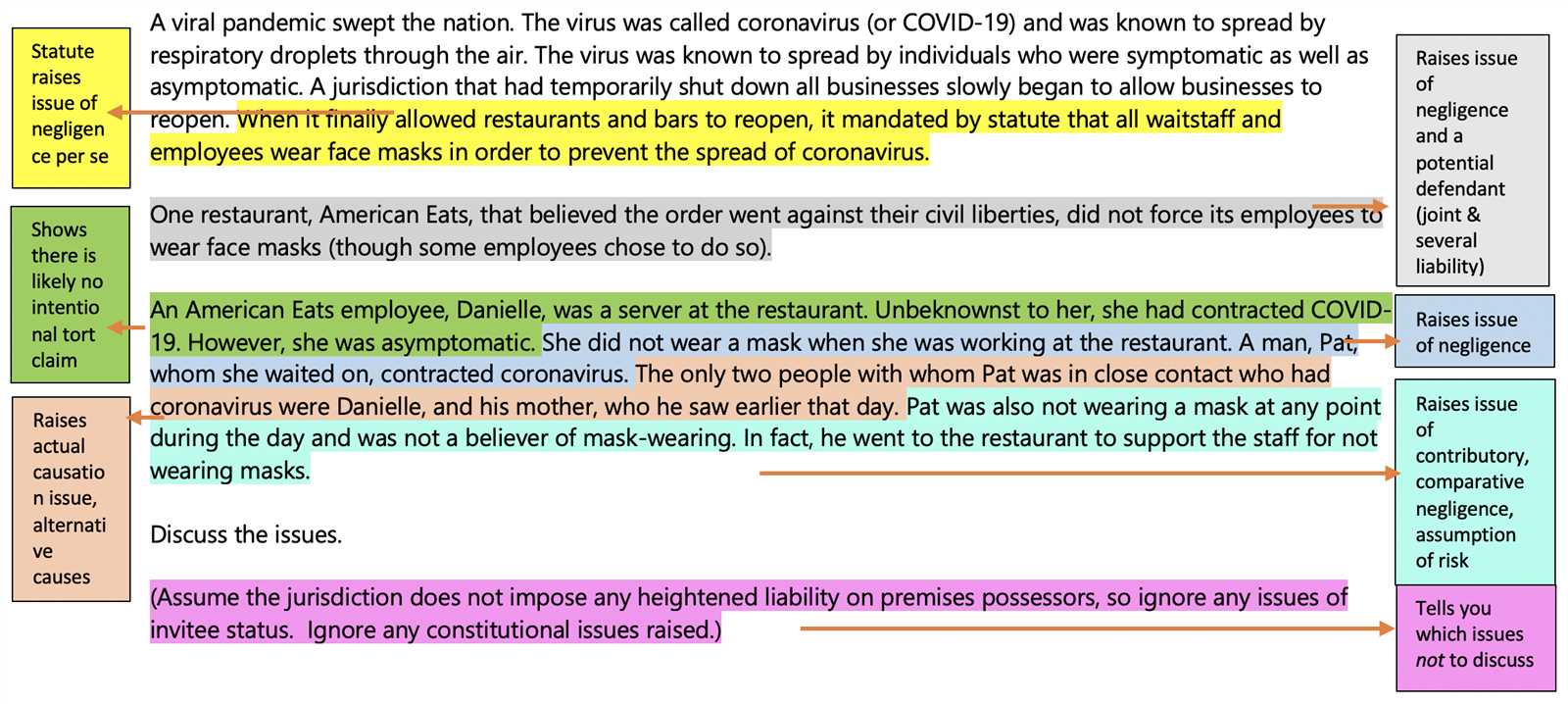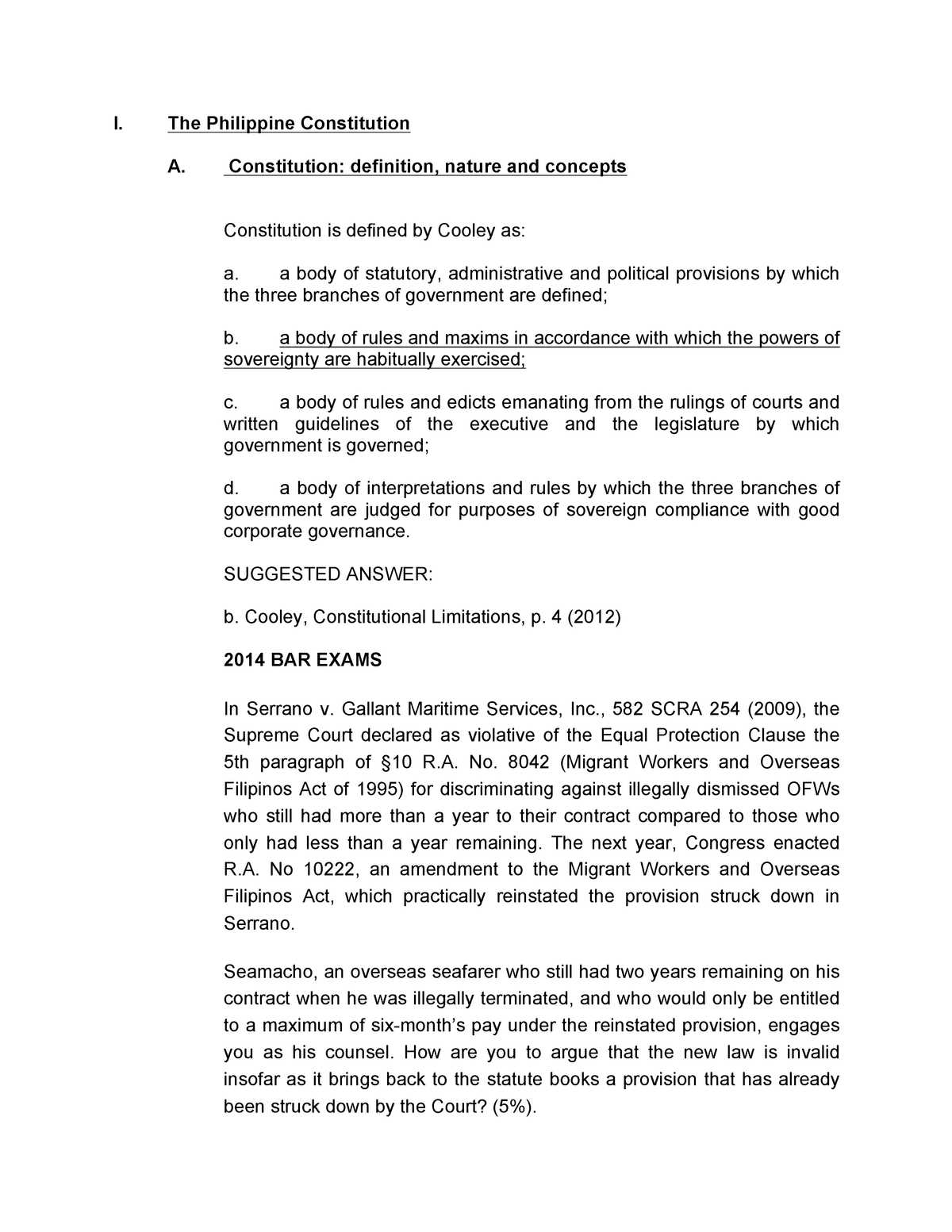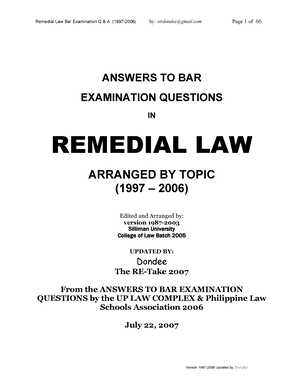
Preparing for a legal certification test can be a daunting task, but understanding the structure and format is essential for success. Knowing how to approach various sections of the assessment allows candidates to focus their efforts and improve performance. By familiarizing oneself with common topics and the typical phrasing of test prompts, aspiring professionals can refine their knowledge and response strategies.
Structured preparation is key to mastering this process. It’s crucial to practice with materials that mirror the actual test, as this provides valuable insight into what to expect. Engaging with mock scenarios enhances critical thinking and legal reasoning, helping candidates better articulate their knowledge in high-pressure situations.
With the right tools and strategies, individuals can approach the challenge with confidence. This guide aims to provide essential practice exercises and advice to assist in navigating through the different stages of the certification process, ensuring that every candidate is well-prepared for success.
Practice Scenarios for Legal Certification Preparation

Effective preparation for the legal professional qualification process involves engaging with materials that simulate the types of tasks and problem-solving required during the actual evaluation. These exercises help candidates sharpen their skills in responding to complex legal situations and strengthen their understanding of core topics. By practicing with realistic tasks, aspiring lawyers can develop better strategies for providing clear and precise legal reasoning under time pressure.
Understanding Legal Frameworks through Practice
To succeed, candidates must familiarize themselves with a range of legal concepts and their applications. Here are some common areas tested during the process:
- Contract Law and Agreement Enforcement
- Civil Liability and Legal Remedies
- Constitutional Rights and Statutory Interpretation
- Criminal Law and Defenses
- Ethical Standards and Professional Responsibility
Approaching Complex Legal Scenarios
During the qualification process, candidates are often faced with intricate legal problems that require structured reasoning. Here’s a breakdown of how to approach these cases effectively:
- Read through the facts carefully and identify key issues.
- Analyze the legal principles relevant to each issue.
- Formulate clear, concise arguments and solutions based on applicable laws.
- Conclude with well-supported reasoning and potential outcomes.
By consistently practicing with these types of tasks, candidates can refine their approach and improve their performance when the time comes to demonstrate their expertise.
Understanding the Legal Certification Structure
Familiarity with the structure of a professional legal assessment is crucial for effective preparation. The test is designed to evaluate a candidate’s understanding of a wide range of legal principles and their ability to apply them in practice. Breaking down the format of the process helps aspiring lawyers focus on the areas most likely to be tested, streamlining their study efforts and enhancing their chances of success.
The certification procedure typically consists of multiple sections, each assessing a different aspect of legal expertise. These may include both theoretical questions and practical scenarios, designed to challenge candidates’ ability to reason and solve problems under pressure. Understanding the structure enables candidates to develop tailored study strategies that cover all necessary topics, ensuring comprehensive preparation.
Test preparation becomes more efficient once candidates recognize the types of sections they will face. Each part of the test requires a different approach–whether memorizing essential legal concepts, practicing writing skills, or developing quick critical thinking strategies. By aligning their study practices with the test format, individuals can better manage their time and improve their overall performance.
Key Subjects Covered in the Legal Certification Process
For those preparing to become licensed professionals in the legal field, understanding the core topics evaluated during the certification process is essential. These subjects test candidates’ knowledge of both foundational laws and their practical application. Mastery of these areas is crucial, as they form the backbone of legal practice and are central to passing the evaluation.
Some of the most important topics include constitutional law, which deals with the principles that govern a nation’s legal system, and contract law, which focuses on agreements between parties and their enforceability. Additionally, candidates must demonstrate proficiency in areas such as criminal law, addressing offenses and their legal consequences, and civil procedure, which governs the process of resolving disputes between individuals and entities.
Understanding these subjects thoroughly not only prepares candidates for the specific tasks they will face but also equips them with the necessary legal reasoning and decision-making skills required in real-world practice. A well-rounded knowledge base across these areas is essential for success in the overall certification process.
How to Approach Legal Test Tasks
Successfully tackling complex legal tasks during a professional qualification process requires a strategic approach. Candidates must quickly identify key issues, analyze the applicable laws, and structure their responses logically. It’s essential to stay focused on addressing the core problem while presenting clear, concise reasoning that demonstrates a deep understanding of legal principles.
One of the first steps in approaching any task is to carefully read through the provided scenario. Pay close attention to the facts and any specific questions or issues raised. Once the main points are identified, candidates should apply relevant legal concepts to each issue, ensuring their responses are supported by proper citations or references to statutes and case law. Clarity of thought and organization are crucial at this stage to avoid unnecessary confusion.
Practice makes perfect, and repeated engagement with mock tasks can help candidates refine their technique. Over time, they will become more efficient in recognizing the structure of typical problems and learning to address them under time constraints. By consistently following this method, individuals will build confidence and improve their ability to solve complex legal issues with precision.
Common Pitfalls in Legal Test Responses

When preparing for a legal certification assessment, it’s important to be aware of common mistakes that can undermine an otherwise strong response. These errors can arise from a variety of factors, such as misunderstanding the question, failing to provide adequate support for arguments, or misapplying legal principles. Avoiding these pitfalls ensures that answers are not only correct but also well-structured and compelling.
Key Mistakes to Avoid
Here are some common issues that candidates should watch out for when crafting their responses:
- Overlooking Critical Facts: Failing to address the key facts presented in a scenario can result in incomplete or irrelevant answers.
- Vague or Generalized Responses: Providing unclear or overly general statements without citing specific laws or precedents weakens the argument.
- Ignoring the Structure of the Question: Not directly answering the question or deviating from the issue at hand can lead to missed points.
- Inadequate Legal Support: Not citing relevant statutes, regulations, or case law can make an answer appear unsupported and less credible.
- Overcomplicating Responses: Over-explaining or introducing unnecessary details can confuse the reader and detract from the main argument.
How to Overcome These Challenges
To avoid these mistakes, candidates should focus on the following strategies:
- Read the prompt carefully to understand the core issue and ensure all relevant facts are incorporated.
- Stay focused on the main question and address it directly with clear, concise points.
- Support your claims with appropriate legal references and case examples to build a strong argument.
- Keep responses organized, ensuring each point flows logically from one to the next.
By staying mindful of these common mistakes and refining their approach, candidates can improve their performance and increase their chances of success in the qualification process.
Top Resources for Legal Certification Preparation

Successful preparation for a professional legal qualification process requires the right resources to guide you through the complexities of the material. Whether you prefer self-study or structured courses, having access to comprehensive tools can significantly enhance your chances of success. Using the most effective resources helps build knowledge, refine skills, and improve performance on assessment day.
Essential Study Materials
Below are some of the most valuable resources for thorough preparation:
- Practice Tests: Engaging with mock scenarios allows you to simulate the actual process and get familiar with the types of tasks you’ll face.
- Study Guides: Comprehensive guides offer summaries of key legal principles and provide practice exercises that reinforce critical concepts.
- Review Courses: Enrolling in structured review courses can help you stay on track, with expert-led sessions focusing on areas that require more attention.
- Online Platforms: Digital resources, including legal blogs and forums, offer insights, tips, and strategies from fellow candidates and experienced professionals.
Books and Reference Materials
Aside from practice tests, certain books and legal references are indispensable during the preparation process:
- Case Law Compilations: Familiarity with landmark cases is vital for answering scenario-based tasks effectively.
- Legal Dictionaries: A legal dictionary can help clarify terminology and ensure that you are using precise language when addressing questions.
- Annotated Statutes: These offer in-depth explanations and interpretations of laws, helping you apply them correctly in different situations.
Utilizing these resources consistently will give you a well-rounded preparation and the confidence to tackle any challenge that arises during the certification process.
Strategies for Time Management During the Test
Effective time management is essential when facing a professional legal assessment. The ability to allocate your time wisely across various tasks can significantly impact your performance. Without a well-thought-out plan, it’s easy to get bogged down by difficult sections, leaving insufficient time for others. By using efficient strategies, you can ensure that each section of the test is approached with focus and care.
Prioritize and Organize
The first step in managing your time effectively is to prioritize the tasks based on their complexity and point value. This way, you can dedicate more time to more challenging or higher-scoring sections. Here are some helpful tips:
- Review the entire test: Before you begin, quickly scan through all the questions or scenarios to get a sense of their difficulty.
- Start with easier sections: This helps you build momentum and boosts your confidence before tackling more complex problems.
- Allocate time for each task: Set specific time limits for each question or section and stick to them.
Stay Focused and Avoid Overthinking
Maintaining focus during the test is crucial for keeping on schedule. Avoid spending too much time on any single question, even if it seems particularly difficult. If you find yourself stuck, move on to the next task and return to it later if time permits. To help maintain focus:
- Practice mindfulness: Take a few deep breaths if you start feeling anxious or overwhelmed.
- Track your progress: Regularly check the time to ensure that you are on pace to complete all sections.
- Stay calm: Don’t let one challenging task affect your performance on the rest of the test.
By sticking to these strategies, you’ll be able to complete all sections of the assessment efficiently, reducing stress and increasing your chances of success.
What to Expect in the 2024 Legal Qualification Process

The upcoming 2024 legal certification process will feature important updates and expectations for all candidates. As the landscape evolves, those preparing for the qualification will face a series of rigorous assessments designed to test their knowledge, skills, and practical application of legal concepts. Understanding the key changes and the structure of the upcoming certification will help candidates prepare more effectively and manage expectations.
Key Changes in the 2024 Process
In 2024, there will be several adjustments to the structure and content of the assessment. The following changes are expected:
- Updated Question Format: A shift towards more complex scenarios requiring detailed analysis and application of multiple legal areas.
- Increased Focus on Practical Application: More emphasis will be placed on real-world problem-solving skills, testing the ability to apply legal principles in practical situations.
- Revised Time Constraints: The time allocated for completing sections may be adjusted, requiring candidates to manage their time more efficiently during the assessment.
Preparation Tips for Success
To excel in the 2024 process, candidates should focus on the following strategies:
- Stay Updated on Changes: Familiarize yourself with any new rules or guidelines to ensure your study material is relevant.
- Practice Under Time Pressure: Simulate test conditions by practicing with time constraints to build your speed and efficiency.
- Strengthen Core Areas: Focus on mastering foundational legal principles that are likely to be tested across different sections.
With thorough preparation and an understanding of the 2024 changes, candidates can approach the qualification with confidence and readiness.
Importance of Practice Exams for Success
Practice tests play a vital role in preparing for any professional certification process. They not only help you familiarize yourself with the format and types of tasks you’ll encounter but also serve as a key tool for identifying areas that require further attention. By simulating the actual assessment, you can develop strategies to improve both your speed and accuracy, increasing your chances of success.
Benefits of Practice Assessments
Engaging in regular practice sessions provides several advantages during your preparation:
- Builds Confidence: Familiarity with the task format helps reduce anxiety, making you more confident when approaching the real test.
- Improves Time Management: Practice tests allow you to experiment with time allocation, ensuring that you can complete tasks within the allotted time during the actual assessment.
- Enhances Critical Thinking: Regular exposure to different types of challenges strengthens your ability to analyze and apply knowledge under pressure.
- Reveals Weak Areas: By reviewing your performance on practice tests, you can identify gaps in your understanding and focus on improving those areas before the official assessment.
How to Maximize the Effectiveness of Practice Tests

To make the most of your practice sessions, consider the following strategies:
- Simulate Test Conditions: Take practice tests under timed conditions to mirror the actual experience as closely as possible.
- Review Mistakes Thoroughly: Analyze any incorrect responses to understand where you went wrong and ensure that you learn from them.
- Track Progress: Keep a record of your results and improvement over time, adjusting your study plan as needed.
By incorporating practice assessments into your preparation routine, you’ll not only refine your knowledge but also increase your ability to handle the demands of the certification process.
Exam Format and Question Types Explained
The structure of any professional assessment is designed to evaluate the candidate’s understanding of various subjects in a controlled setting. Understanding the layout of the assessment and the types of tasks that will be presented is essential for proper preparation. Each section is crafted to assess different aspects of a candidate’s knowledge and practical application, with varying levels of difficulty.
Types of Questions You Will Encounter
The evaluation process typically includes several formats, each targeting a distinct set of skills and knowledge. Below are the most common types:
| Type of Task | Purpose | Time Allocation |
|---|---|---|
| Multiple Choice | Test general knowledge and the ability to identify correct information. | Short |
| Essay-based | Evaluate detailed analysis, critical thinking, and practical application. | Medium |
| Case Scenarios | Assess problem-solving ability in a real-world context. | Long |
Understanding the Format
Each type of task is designed to evaluate different skills, from straightforward knowledge recall to more complex problem-solving abilities. The multiple-choice format typically tests factual recall and comprehension, requiring candidates to choose the correct answer from several options. In contrast, essay-based sections demand in-depth analysis, written communication, and a structured approach to legal reasoning. Lastly, case scenarios simulate real-world situations, asking candidates to apply their knowledge in a practical, problem-solving context.
Familiarity with these formats allows candidates to tailor their preparation, honing specific skills to maximize their performance during the assessment.
Tips for Effective Legal Writing
Strong writing is a crucial skill in any professional legal setting, as it ensures clear communication of complex ideas and arguments. Whether drafting a brief, memo, or legal opinion, the ability to express thoughts concisely and persuasively can make a significant difference in outcomes. Developing effective writing techniques is essential for success in any legal qualification process.
Key Elements of Strong Legal Writing
Effective legal writing is structured, logical, and precise. Below are key components that contribute to impactful writing:
| Element | Description | Importance |
|---|---|---|
| Clarity | Ensure that your points are easily understood and avoid unnecessary jargon. | Prevents confusion and improves readability. |
| Conciseness | Avoid overly long sentences and stick to the essential points. | Improves flow and keeps the reader engaged. |
| Structure | Organize your writing into clear sections with logical progression. | Helps the reader follow your reasoning more easily. |
| Precision | Use accurate terminology and be specific in your arguments. | Shows attention to detail and enhances credibility. |
Common Mistakes to Avoid
Even experienced legal professionals can fall into certain traps. Below are some common errors to be aware of in legal writing:
- Overuse of Complex Language: While legal terms are necessary, excessive complexity can confuse the reader.
- Excessive Length: Writing that is too long without adding value can detract from the central argument.
- Lack of Focus: Straying off-topic or including irrelevant details weakens the strength of your argument.
- Vague Assertions: Avoid making broad claims without providing specific legal evidence or reasoning to back them up.
By honing these skills and avoiding common pitfalls, legal professionals can improve their writing, making it a powerful tool for success in any assessment process.
Commonly Asked Bar Exam Questions
During a professional assessment, certain topics and types of tasks are frequently revisited. These are often designed to assess a candidate’s grasp of key concepts, legal reasoning, and ability to apply knowledge in real-world scenarios. Understanding the types of tasks that are commonly presented can provide valuable insight into what to expect and how to prepare.
Typical Scenarios and Concepts
The following topics are regularly covered, requiring candidates to demonstrate proficiency in both theoretical knowledge and practical application:
- Legal Ethics: Questions regarding professional responsibility and the rules governing conduct are commonly tested. Candidates are expected to understand ethical obligations and how they apply to specific situations.
- Constitutional Law: Many questions focus on the interpretation of constitutional provisions, analyzing both legal precedents and current interpretations.
- Criminal Law: Scenarios involving criminal liability, defenses, and procedure are often presented. These require candidates to analyze both facts and legal principles to arrive at sound conclusions.
- Contract Law: A key area of focus includes evaluating agreements, their enforceability, and the rights of parties under different conditions.
- Tort Law: Understanding personal injury claims and liability for harm is another frequently tested area, particularly in hypothetical scenarios involving negligence or intentional acts.
Preparation for Common Tasks
While it’s important to be ready for any topic, these recurring themes can be prioritized in study sessions. Practicing with real-world examples and reviewing previous case studies can provide insight into the types of scenarios likely to be tested. Developing strategies for approaching these typical scenarios ensures readiness for any challenge presented during the assessment.
Reviewing Model Answers for Clarity

One of the most effective ways to improve understanding and performance in a legal assessment is by reviewing high-quality model responses. These examples not only demonstrate the ideal approach to structuring responses but also provide insight into the level of detail, precision, and clarity required in professional evaluations. By studying these responses, candidates can gain a clearer understanding of how to present their reasoning and arguments in a concise, coherent manner.
Key Elements of a Clear Response
When reviewing model answers, focus on the following elements that contribute to clarity and effectiveness:
- Logical Structure: A well-organized response is easy to follow. Each section should flow naturally from one to the next, with a clear introduction, body, and conclusion.
- Concise Language: Use of straightforward, precise language ensures that the reader can easily understand the main points without unnecessary complexity.
- Thorough Analysis: A clear response doesn’t simply state the facts or rules–it analyzes them. Look for answers that go beyond surface-level explanations and dive into the reasoning behind each decision.
- Use of Relevant Precedents: The inclusion of case law or statutes can help strengthen a response by showing how legal principles are applied to specific facts.
Common Pitfalls to Avoid
Even when reviewing model responses, it’s important to recognize areas where clarity might be compromised. Some common pitfalls include:
- Overcomplicating Language: Using overly technical or jargon-heavy language can make the response difficult to understand. It’s essential to strike a balance between legal precision and readability.
- Vague Conclusions: Answers that lack clear conclusions or are ambiguous can confuse the reader. Always ensure that your reasoning leads to a definitive answer or stance.
- Irrelevant Information: While additional details may seem helpful, including irrelevant information can distract from the main points and weaken the overall clarity of the response.
Best Study Plans for Bar Exam Success
Creating a structured and effective study plan is crucial for achieving success in any rigorous legal assessment. A well-designed plan not only helps in mastering the required material but also in managing time efficiently, reducing stress, and ensuring a balanced approach to preparation. Tailoring your study sessions to address both strengths and weaknesses, while incorporating regular review, is key to achieving high performance.
Effective study plans should focus on a mix of core areas, with adequate time dedicated to both understanding complex legal concepts and practicing their application. Here are some tips to craft the best study plan:
- Start Early: Begin your preparations well in advance to allow ample time to grasp all essential topics without feeling rushed.
- Break It Down: Divide the material into manageable sections and focus on one topic at a time. This prevents feeling overwhelmed and promotes better retention of information.
- Incorporate Active Learning: Instead of passive reading, engage in active learning methods such as outlining, summarizing, or teaching concepts to others to reinforce your understanding.
- Practice Regularly: Set aside dedicated time for practical exercises, including timed writing sessions, to simulate real test conditions and build exam-taking skills.
- Review and Adjust: Periodically assess your progress and adjust your plan as needed. Focus more on areas where you struggle, while continuing to reinforce your strengths.
By adhering to a carefully structured study plan, candidates can significantly increase their chances of excelling in the evaluation. The goal is not only to master the content but also to build the confidence and stamina needed to perform under pressure.
How to Stay Calm During the Exam
Remaining composed during a high-stakes assessment is essential for optimal performance. When stress levels rise, it’s easy to lose focus and make mistakes. However, learning how to stay calm and centered can greatly improve both clarity of thought and decision-making. It’s important to practice strategies that help maintain mental equilibrium before and during the challenge.
Here are some techniques that can help you manage anxiety and stay focused throughout the process:
Breathing Exercises
Simple breathing exercises can help reduce tension and clear your mind. Focusing on slow, deep breaths can activate the body’s relaxation response and help you regain composure.
Time Management Strategies
Effective time management during the assessment is crucial in avoiding panic. Setting time limits for each section and using a watch or timer to monitor progress can reduce the likelihood of feeling rushed.
| Strategy | Benefits |
|---|---|
| Slow Breathing | Reduces anxiety, improves focus |
| Time Allocation | Prevents rushing, allows for review |
| Positive Visualization | Boosts confidence, reduces negative thoughts |
Implementing these techniques can help you build mental resilience, enabling you to stay calm even when faced with challenging moments. By approaching the task with a composed mindset, you increase your chances of performing at your best.
Understanding the Grading System
The grading structure for legal assessments plays a crucial role in determining an individual’s readiness to practice law. It is essential to understand how the evaluation process works, what factors are considered, and how points are awarded for responses. Familiarizing yourself with the grading criteria can help in tailoring your preparation effectively and setting realistic expectations.
Grading Criteria Overview
The grading system typically evaluates responses based on clarity, accuracy, and relevance. Every aspect of your response is carefully analyzed to see if it aligns with legal standards and reasoning. While specific weights may vary, understanding the general framework is vital for focusing your efforts on the most important areas.
Scoring Breakdown
Different sections of the test may be scored differently. Some parts might be more focused on critical thinking and analysis, while others assess your ability to recall specific rules and regulations. Knowing which areas are weighted more heavily allows you to prioritize your time and energy.
- Comprehensiveness: Responses that cover all relevant points are awarded higher marks.
- Clarity: Well-organized and clearly written answers score better.
- Relevance: Avoiding unnecessary information and staying focused on the core issues is key.
Understanding the grading system provides insight into how to approach each task strategically, allowing you to maximize your performance during the assessment process.
Post-Exam Tips for Stress Relief
After completing a high-stakes assessment, it is important to take the time to decompress and manage any lingering stress. The period following a challenging test can be overwhelming, but incorporating effective relaxation techniques can aid in restoring mental clarity and well-being. Here are some strategies that can help relieve stress after the pressure has subsided.
Relaxation Techniques
Relaxation is key to recovering from the mental strain of the process. These activities can help reset your mind and improve your mood:
- Meditation: Taking a few minutes to practice mindfulness or meditation can reduce anxiety and improve focus.
- Deep Breathing: Deep, slow breathing exercises can help calm your nervous system and restore a sense of control.
- Gentle Stretching: Light physical activity, such as stretching or yoga, can relieve muscle tension and improve circulation.
Releasing Mental Tension
Clearing your mind after such an intense experience is essential for emotional recovery. Consider engaging in the following activities:
- Physical Exercise: Taking a walk or engaging in a favorite sport can release endorphins, boosting your mood.
- Socializing: Connecting with friends or family for casual conversation can provide emotional support and laughter, easing tension.
- Enjoying a Hobby: Whether it’s reading, cooking, or painting, spending time on activities you enjoy can help redirect your energy and thoughts.
Taking a moment to step back and focus on your well-being after a major challenge is an essential part of maintaining mental health. By implementing these strategies, you can ensure a smoother transition back to your regular routine and reduce the lingering effects of stress.